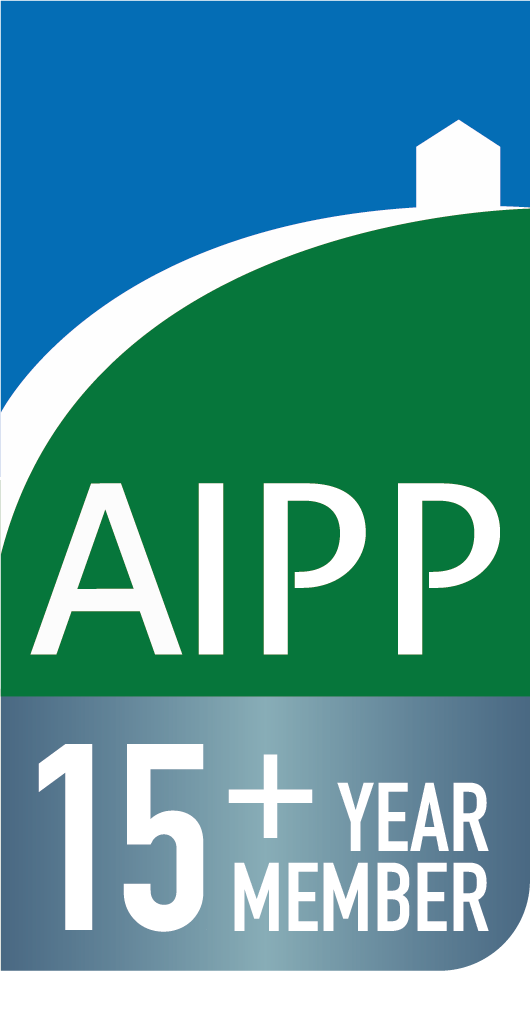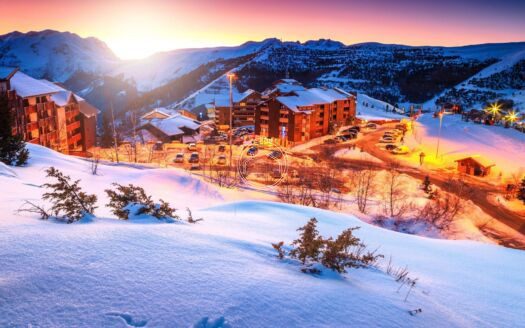Guide to VAT Recovery on French Ski Properties: Case Study & FAQs
VAT Recovery on French Ski Properties: The Complete Guide to Claiming Your 20% Refund
Investing in French ski properties has never been more financially attractive, thanks to the VAT recovery scheme that allows buyers to reclaim 20% of their purchase price. This comprehensive guide explores how property investors can leverage this powerful incentive to maximize their returns while enjoying their slice of the French Alps.
Understanding the French VAT Recovery System
The French VAT recovery programme represents one of Europe’s most generous property investment incentives. When you purchase a new-build ski property in France, you typically pay the full purchase price including 20% VAT (Taxe sur la Valeur Ajoutée). However, the French Tax Administration offers a complete refund of this VAT under specific conditions, creating substantial savings that can transform your investment economics.
This system was designed to stimulate tourism infrastructure development in mountain regions. By incentivizing private investment in rental properties, the French government encourages the creation of high-quality accommodation that benefits both tourists and local economies.
Who Qualifies for VAT Recovery?
The scheme applies exclusively to new-build properties or those less than five years old sold through professional agents. Traditional resale properties don’t qualify unless the previous owner had already reclaimed VAT and passes this benefit to the new buyer.
Properties must be purchased under specific circumstances:
Off-plan purchases (VEFA scheme – Vente en l’État Futur d’Achèvement)
Newly constructed properties delivered within the last five years
Previously VAT-reclaimed properties being resold
The Core Requirements for VAT Recovery
Property and Rental Specifications
To qualify for VAT recovery, your property must meet strict operational requirements that distinguish it from standard rental accommodation:
Furnishing Requirements: The property must be fully furnished to hotel standards, including all necessary equipment for guests’ immediate occupancy.
Rental Duration Limits: All rentals must be short-term only—no tenant can stay longer than 30 consecutive days. This prevents long-term residential leasing and maintains the property’s tourism focus.
Minimum Availability: Properties must be available for rental a minimum of eight weeks per year, including some high-season periods. You cannot block all premium weeks (Christmas, New Year, February school holidays, and first two weeks of August) and expect management companies to cooperate.
Para-Hotel Services: The Key Differentiator
The most critical requirement involves providing at least three of four para-hotel services:
Personalised reception and check-in (key handover and guest assistance)
Bed linen and towel provision (regular supply and changing)
Regular cleaning services (professional housekeeping between stays)
Breakfast delivery (typically fresh baguettes/croissants)
These services must be professionally organised and documented, usually through your rental management company. The tax authorities may verify that these services are genuinely provided, not merely offered on paper.
The 20-Year Commitment and Its Implications
Understanding the Time Frame
The VAT recovery assumes a 20-year rental commitment, representing the full amortization period under French tax law. This doesn’t mean you’re legally bound for 20 years, but early exit carries financial consequences.
Proportional Repayment: If you stop renting or sell the property before 20 years, you must repay a portion of the reclaimed VAT. The repayment is calculated proportionally—stopping after 10 years requires repaying 50% of the original VAT refund.
Minimum Practical Period: While technically flexible, most management companies require a minimum 5-year commitment to make the arrangement worthwhile. Some contracts now offer rolling annual agreements rather than fixed long-term commitments, providing greater flexibility.
Financial Impact Calculations
Consider a practical example: A €500,000 new-build ski property includes €100,000 in VAT (20%). If you cease rental operations after 10 years, you’d need to repay €50,000 to the tax authorities—still leaving you with €50,000 in savings compared to properties without VAT recovery.
Case Study: Maximising Returns in Courchevel
The Investment Profile
Sarah and James, British investors, purchased a €850,000 off-plan apartment in Courchevel through the VAT recovery scheme. Their property included €170,000 in VAT, which they successfully reclaimed within 18 months of completion.
Property Details and Setup
The couple chose a two-bedroom apartment in a new development specifically designed for the para-hotel market. The property came fully furnished to luxury standards and was managed by a professional company specialising in VAT-compliant rentals.
Initial Investment:
Purchase price: €850,000 (including €170,000 VAT)
Notary fees: €21,250 (2.5% on new builds)
Management setup: €3,000
Total initial outlay: €874,250
Rental Performance and Management
The management company structured their rental programme to optimise both VAT compliance and revenue generation:
Peak Season Strategy: The property was marketed heavily during winter peak periods (December-April), with particular focus on Christmas, New Year, and February school holidays—generating 60% of annual rental income during just 6-8 weeks.
Summer Opportunities: July and August bookings, especially the first two weeks of August, provided additional high-value rental periods.
Para-Hotel Services Implementation:
Reception services: Professional check-in via local agency
Linen service: Weekly changes included in rental rates
Cleaning: Professional service between all stays
Breakfast delivery: Local bakery partnership for fresh pastries
Financial Results After Three Years
VAT Recovery: €170,000 reclaimed within 18 months of property completion.
Annual Rental Performance:
Year 1: €35,000 gross rental income (€26,250 net after 25% management fees)
Year 2: €42,000 gross rental income (€31,500 net)
Year 3: €38,000 gross rental income (€28,500 net)
Personal Use: The couple enjoyed 4-6 weeks annually, including one week during February half-term and various off-peak periods.
Total Financial Impact:
VAT savings: €170,000
Three-year net rental income: €86,250
Combined benefit: €256,250
Professional Support Structure
Rental Management: The couple partnered with a specialized Alpine rental company charging 25% commission but handling all VAT compliance requirements, marketing, and guest services.
Accounting Support: Annual accounting fees of €350 covered VAT return preparation and liaison with French tax authorities.
Legal Structure: The property was held through a French SCI (property holding company), providing tax efficiency and succession planning benefits.
Operational Considerations and Best Practices
Working with Management Companies
Selecting the Right Partner: Choose management companies with proven VAT recovery experience and strong local market presence. They should handle all para-hotel service coordination and provide comprehensive documentation for tax authorities.
Contract Flexibility: Modern agreements increasingly offer annual rolling contracts rather than fixed long-term commitments, providing more flexibility while maintaining VAT benefits.
Revenue Optimisation: Professional managers focus on peak period marketing while maintaining year-round availability. Work-from-home trends have also increased off-season demand in mountain locations.
Personal Use Coordination
Advance Planning: Notify your management company well in advance of personal stays, particularly during peak seasons. Most agreements allow reasonable personal use with proper coordination.
Friends and Family: All stays by friends or family must be processed as regular rentals using the full para-hotel service structure to maintain VAT eligibility.
Documentation and Compliance
Record Keeping: Maintain comprehensive records of all rental activities, service provision, and guest interactions. Tax authorities may request evidence of genuine commercial operation.
Professional Invoicing: All rental transactions must be properly invoiced through your management company, with VAT charged on both accommodation and services.
Tax Implications and Ongoing Obligations
Annual Tax Responsibilities
Properties operating under the para-hotel regime face more complex tax obligations than standard rentals:
VAT on Rental Income: You must charge and remit VAT on both accommodation and para-hotel services provided to guests.
Income Tax Treatment: Rental income is subject to French income tax, though various deductions and allowances can significantly reduce the effective rate.
Professional Status: The para-hotel regime may require registration as a commercial activity, depending on revenue levels and service provision.
Accounting and Professional Support
Specialist Accountants: Engage French accountants experienced in VAT recovery and para-hotel operations. Annual fees typically range from €300-€500 but ensure full compliance and optimization.
Tax Return Preparation: Professional support is essential for completing VAT returns and maintaining the necessary documentation for tax authorities.
Regional Market Insights
Prime Locations for VAT Recovery
Three Valleys: Courchevel, Méribel, and Val Thorens offer the highest rental yields and strongest resale values, making them ideal for VAT recovery investments.
Paradiski: La Plagne and Les Arcs provide excellent value propositions with strong rental demand and lower entry costs.
Espace Killy: Val d’Isère and Tignes command premium rates and attract international clientele year-round.
Market Timing and Opportunities
Developer Incentives: Some developers now offer to prepay the VAT, allowing buyers to purchase at ex-VAT prices while the developer handles the recovery process. This eliminates cash flow challenges and accelerates investment returns.
Seasonal Variations: Purchase timing can impact both acquisition costs and initial rental setup. Off-season purchases often provide better negotiating positions with both developers and management companies.
Risk Management and Exit Strategies
Understanding the Risks
Market Fluctuations: Ski property values can vary significantly based on snow conditions, economic factors, and tourism trends. Diversification across multiple properties or locations can mitigate these risks.
Regulatory Changes: VAT recovery rules may evolve, though the fundamental incentive structure has remained stable for over a decade.
Management Dependency: Your VAT compliance depends heavily on professional management. Choose established companies with strong track records and financial stability.
Exit Strategy Planning
Minimum Hold Periods: Plan for at least 5-7 years of rental operation to maximise VAT benefits while minimising repayment obligations.
Resale Considerations: Properties with established VAT recovery can be attractive to future buyers, potentially commanding premium prices.
Portfolio Development: Successful VAT recovery on one property can provide capital for additional investments, creating a portfolio effect.
Future Outlook and Market Evolution
Emerging Trends
Flexible Contracts: Management companies increasingly offer annual rolling agreements rather than fixed long-term commitments, providing greater investor flexibility.
Technology Integration: Digital platforms are streamlining guest services and documentation requirements, making VAT compliance more efficient.
Sustainability Focus: New developments increasingly emphasise environmental credentials, potentially enhancing long-term value and rental appeal.
Regulatory Stability
The VAT recovery scheme has proven remarkably stable, with the fundamental 20% incentive unchanged for over a decade. Political support remains strong given the scheme’s effectiveness in promoting tourism infrastructure investment.
Ready to Buy your ski Home?
Get in touch with our French Alps team to secure your ideal ski property.

Domosno — member of the
Association of International Property Professionals
since 2010

FAQs About VAT Recovery In The French Alps
Typically, once a year, based on the property stage payment you made if purchased off-plan If you have several stage payments to make over 2-3 years, each year you are refunded the VAT amount in that calendar year. In one go if the property is paid in full in one go, depending on documentation quality and tax authority processing times. Professional accounting support can expedite the process.
Yes, VAT can be recovered on furnishing, equipment, and renovation expenses provided the property operates under the para-hotel regime and meets all service requirements.
You must repay a proportional amount of the recovered VAT. Selling after 10 years requires repaying 50% of the original VAT refund, but you still retain significant savings.
No clear guidelines but in general: minimum 8 weeks per year, including a few high-season periods. You cannot block all premium weeks (Christmas, New Year, February holidays, early August) and expect management cooperation.
Of course but you need to declare the number of weeks that you stayed in the property and declare the stay for 75% of its lowest rental value for that week.
Yes, but they must be processed as paying guests using the full para-hotel service structure to maintain VAT eligibility. Personal use must be coordinated with your management company.
You need minimum three of the four services (reception, linen, cleaning, breakfast). All must be professionally organized and documented for tax compliance.
Yes, rental income is subject to French income tax and social charges. Professional accounting advice is recommended to optimise your tax position. With the property amortisation system in France you can receive rental income for 10 years without paying any tax.
Non-residents pay income tax on French rental income profit at flat rates:
20% on income up to €29,315 (2025 threshold)
30% on income above €29,315
These rates apply to net rental income after all deductions are made.
Impact on Taxable Rental Profit
Annual amortisation: €400,000 × 4% = €16,000 deducted per year from rental income.
Additionally, furniture and major equipment can also be amortised (typically over 5-10 years for furniture).
Combine amortisation with other deductible expenses (interest, repairs, management fees), and you may find your taxable profit is close to zero—even with steady rental income:
If you have €20,000 rental income, and €16,000 amortisation, €2,000 interest, €1,000 maintenance: taxable rental profit = €1,000.
If those other expenses are higher, profit can be completely wiped out.


